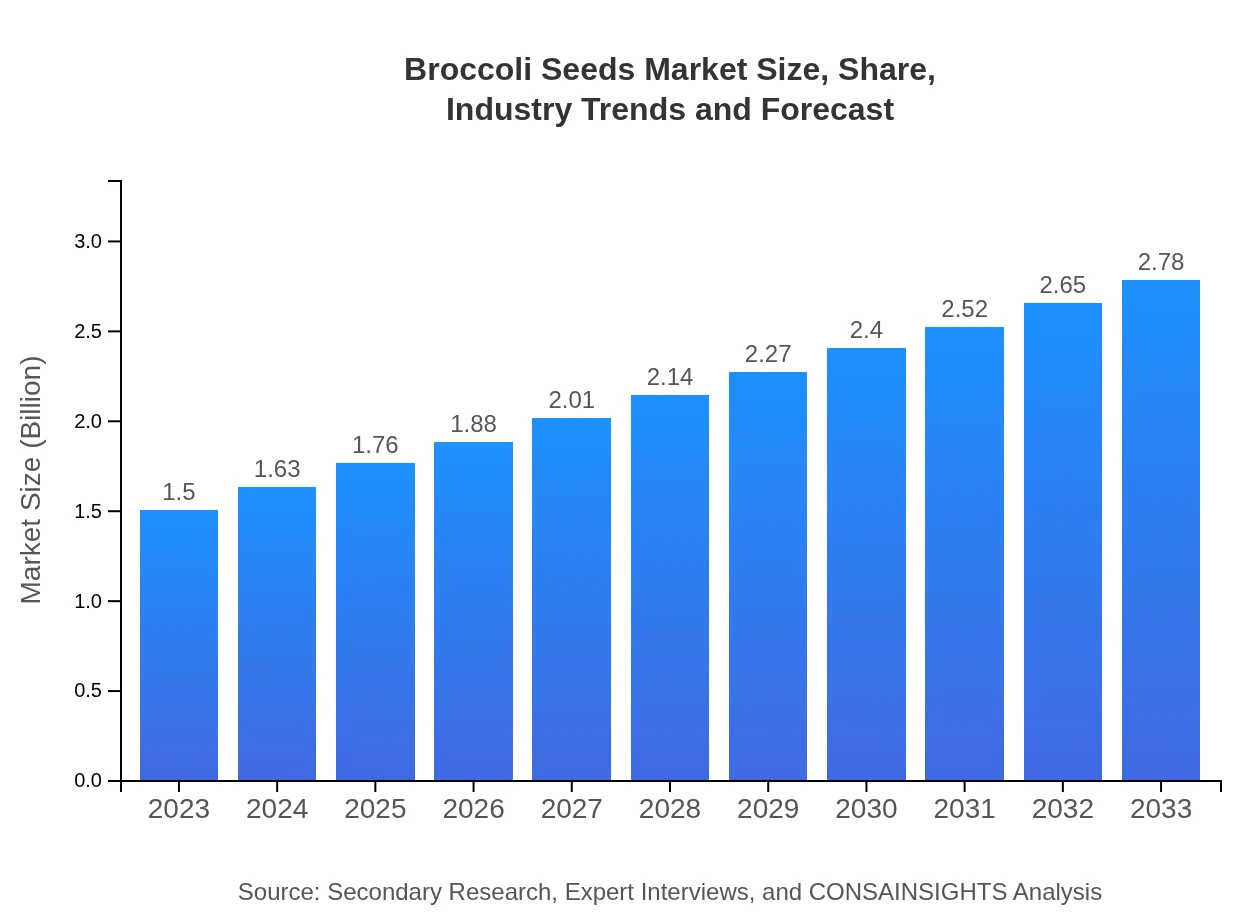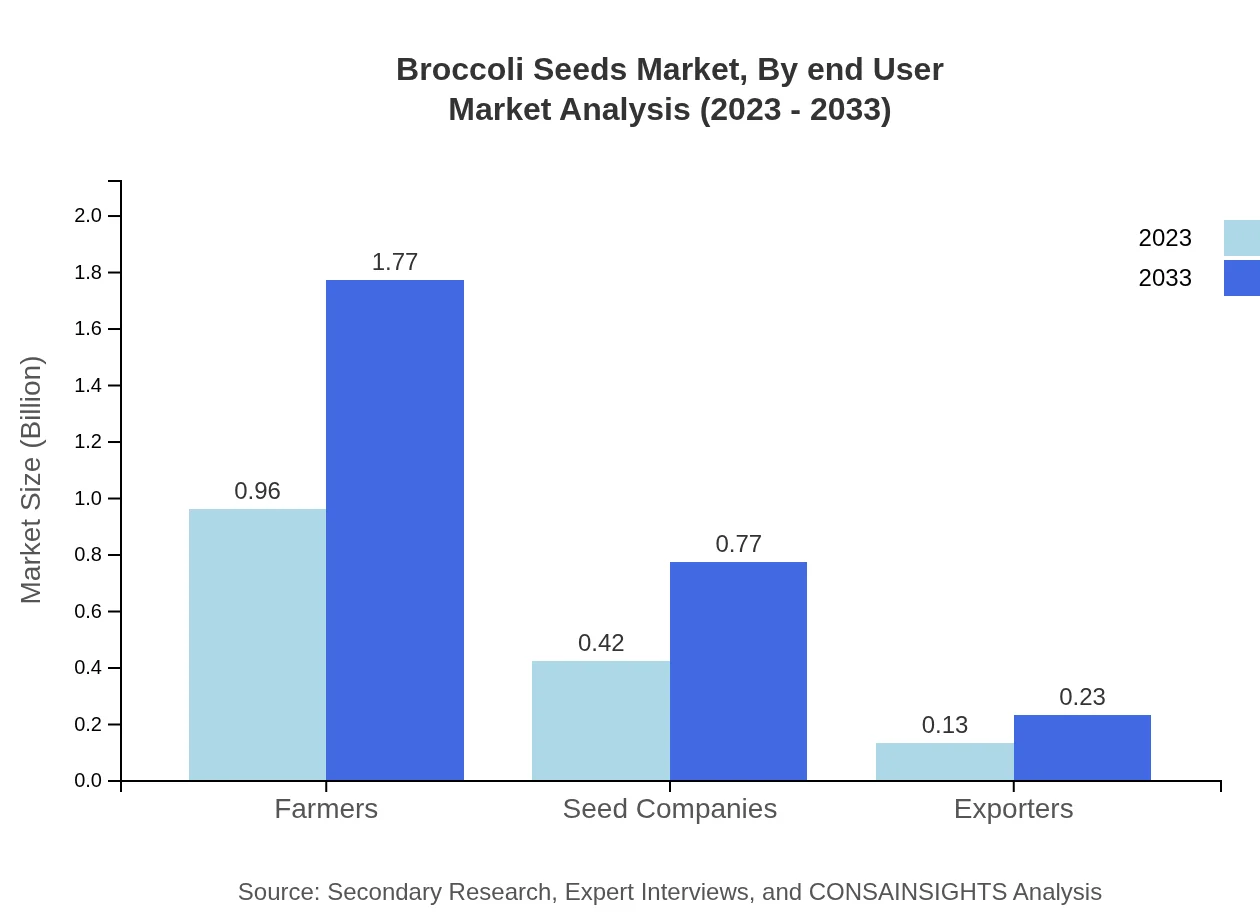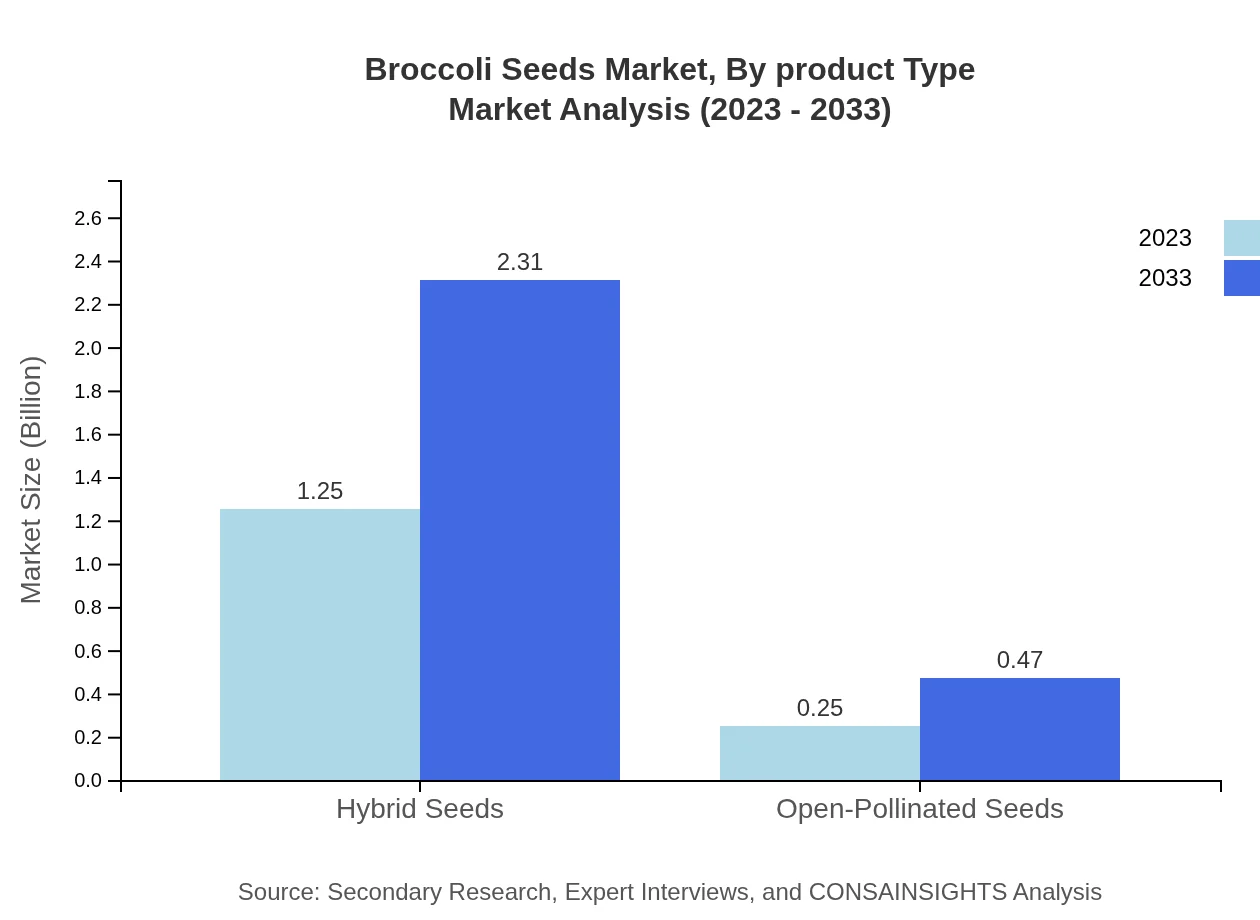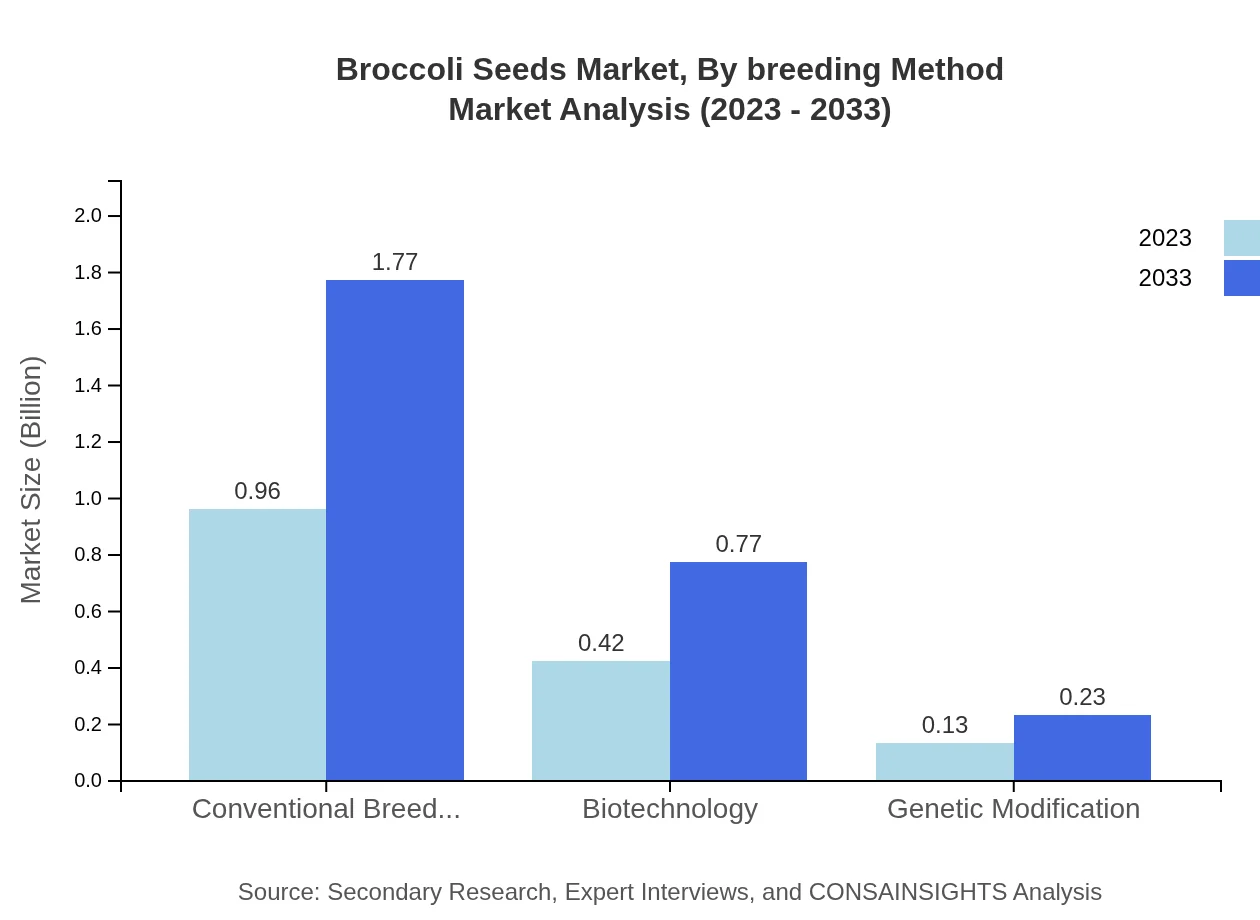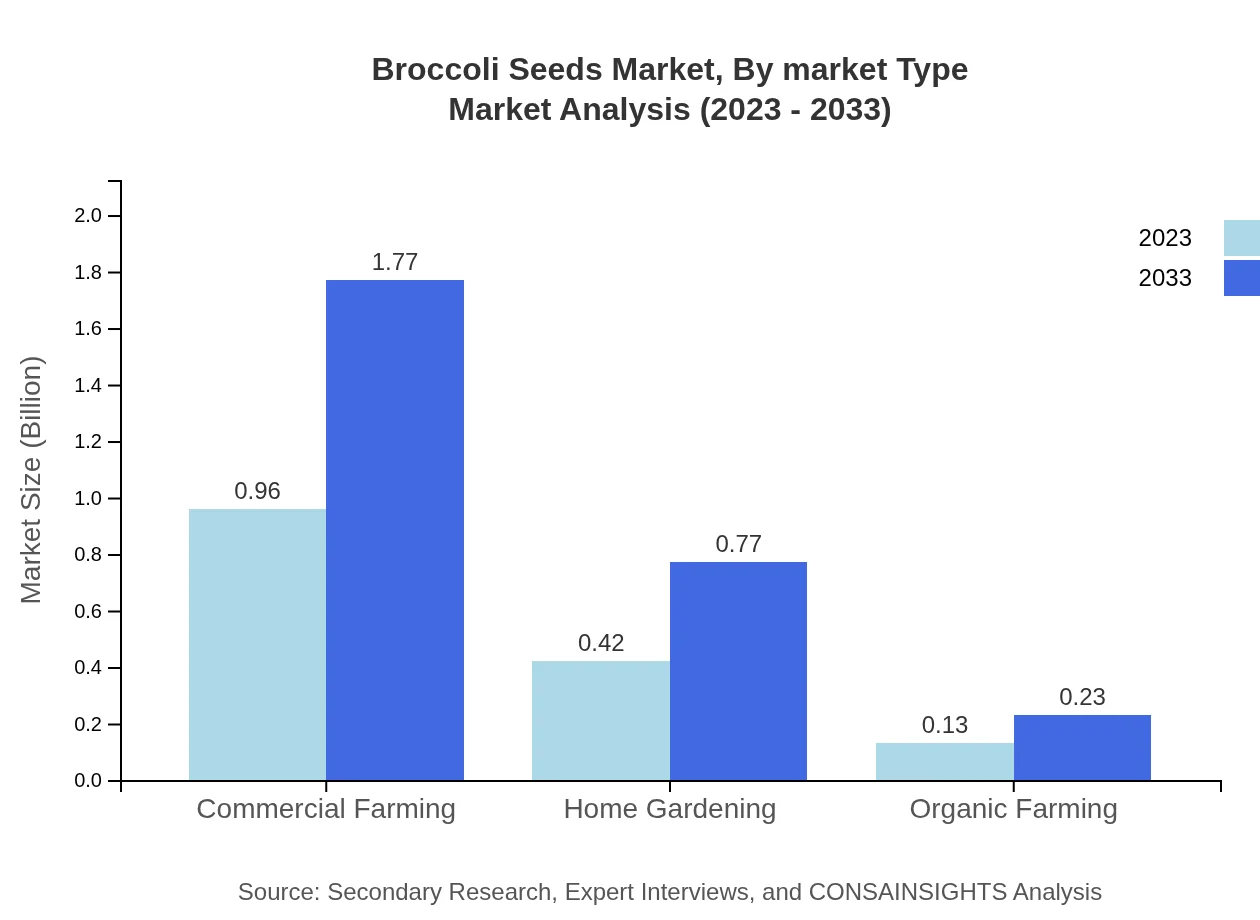Broccoli Seeds Market Report
Published Date: 02 February 2026 | Report Code: broccoli-seeds
Broccoli Seeds Market Size, Share, Industry Trends and Forecast to 2033
This report provides a comprehensive analysis of the Broccoli Seeds market, covering market trends, size, segmentation, and regional insights for the forecast period from 2023 to 2033.
| Metric | Value |
|---|---|
| Study Period | 2023 - 2033 |
| 2023 Market Size | $1.50 Billion |
| CAGR (2023-2033) | 6.2% |
| 2033 Market Size | $2.78 Billion |
| Top Companies | Monsanto Company, Syngenta, Sakata Seed Corporation |
| Last Modified Date | 02 February 2026 |
Broccoli Seeds Market Overview
Customize Broccoli Seeds Market Report market research report
- ✔ Get in-depth analysis of Broccoli Seeds market size, growth, and forecasts.
- ✔ Understand Broccoli Seeds's regional dynamics and industry-specific trends.
- ✔ Identify potential applications, end-user demand, and growth segments in Broccoli Seeds
What is the Market Size & CAGR of Broccoli Seeds market in 2023?
Broccoli Seeds Industry Analysis
Broccoli Seeds Market Segmentation and Scope
Tell us your focus area and get a customized research report.
Broccoli Seeds Market Analysis Report by Region
Europe Broccoli Seeds Market Report:
Europe, valued at $0.53 billion in 2023, is projected to reach $0.98 billion by 2033. The region benefits from advanced agricultural practices and government initiatives supporting sustainable farming.Asia Pacific Broccoli Seeds Market Report:
The Asia Pacific region is emerging as a significant market for broccoli seeds, projected to grow from $0.27 billion in 2023 to $0.50 billion by 2033. Countries like China and India are leading in production, driven by high domestic consumption and increasing health awareness.North America Broccoli Seeds Market Report:
North America is anticipated to grow from $0.50 billion in 2023 to $0.93 billion in 2033, with the U.S. being a major contributor. The trend towards organic farming and health-conscious consumer behavior significantly boosts market demand.South America Broccoli Seeds Market Report:
In South America, the market is expected to rise from $0.12 billion in 2023 to $0.22 billion in 2033. The adoption of modern agricultural practices enhances the production capacity and quality of broccoli seeds in countries like Brazil.Middle East & Africa Broccoli Seeds Market Report:
The market in the Middle East and Africa is expected to grow from $0.08 billion in 2023 to $0.14 billion by 2033. The increasing focus on food security and agricultural productivity improvements are key drivers of growth in this region.Tell us your focus area and get a customized research report.
Broccoli Seeds Market Analysis By End User
The Broccoli Seeds market is primarily driven by the end-user segment comprising farmers, seed companies, exporters, and home gardeners. For instance, farmers account for a significant market share with a value of $0.96 billion in 2023, doubling to $1.77 billion by 2033, which is approximately 63.82% market share.
Broccoli Seeds Market Analysis By Product Type
The production of hybrid seeds leads the market segment with a notable share of 83.1% in 2023, expected to reach 83.1% by 2033. Open-pollinated seeds are also gaining traction, contributing to about 16.9% of the market share by 2033.
Broccoli Seeds Market Analysis By Breeding Method
In terms of breeding methods, conventional breeding holds a strong presence with a market size of $0.96 billion in 2023, expected to rise to $1.77 billion by 2033. Meanwhile, biotechnology methods are slowly gaining share, reaching $0.77 billion by the end of the forecast period.
Broccoli Seeds Market Analysis By Market Type
The commercial farming segment is dominant in the Broccoli Seeds market, with a market size of $0.96 billion in 2023 and projected to grow to $1.77 billion by 2033. Home gardening and organic farming are also important, showing increasing participation among consumers.
Broccoli Seeds Market Trends and Future Forecast
Tell us your focus area and get a customized research report.
Global Market Leaders and Top Companies in Broccoli Seeds Industry
Monsanto Company:
A leading agricultural biotechnology company recognized for its extensive research in improving seed genetics, specifically in the area of hybrid broccoli seeds.Syngenta:
Global agribusiness that specializes in seed development and crop protection. Syngenta offers a variety of broccoli seeds tailored for different climates and growing conditions.Sakata Seed Corporation:
A well-known player in the seed industry, known for its high-quality open-pollinated and hybrid broccoli seeds tailored for diverse markets.We're grateful to work with incredible clients.









FAQs
What is the market size of broccoli Seeds?
The broccoli seeds market is currently valued at approximately $1.5 billion, with a projected CAGR of 6.2% from 2023 to 2033, highlighting the sector's robust growth potential in the coming years.
What are the key market players or companies in this broccoli Seeds industry?
Key players include established seed companies, agricultural cooperatives, and biotechnology firms that specialize in seed innovation, contributing to the enhancement of broccoli seed varieties and supply chain efficiency.
What are the primary factors driving the growth in the broccoli Seeds industry?
The growth in the broccoli-seeds industry is attributed to increasing consumer demand for healthy food, a rise in organic farming practices, and technological advancements that improve seed quality and yield.
Which region is the fastest Growing in the broccoli Seeds?
The fastest-growing region in the broccoli seeds market is North America, with market sizes anticipated to grow from $0.50 billion in 2023 to $0.93 billion in 2033, indicating a strong demand surge.
Does ConsaInsights provide customized market report data for the broccoli Seeds industry?
Yes, ConsaInsights offers customized market report data tailored to specific needs in the broccoli-seeds industry, providing in-depth insights and analytics that cater to individual client requirements.
What deliverables can I expect from this broccoli Seeds market research project?
Deliverables typically include comprehensive market analysis reports, competitor assessments, growth projections, and segmented data covering key demographics, trends, and opportunities within the broccoli-seeds market.
What are the market trends of broccoli Seeds?
Market trends include a shift towards hybrid seed varieties, increased adoption of sustainable agriculture practices, and a growing emphasis on genetically modified options to enhance crop resilience.

